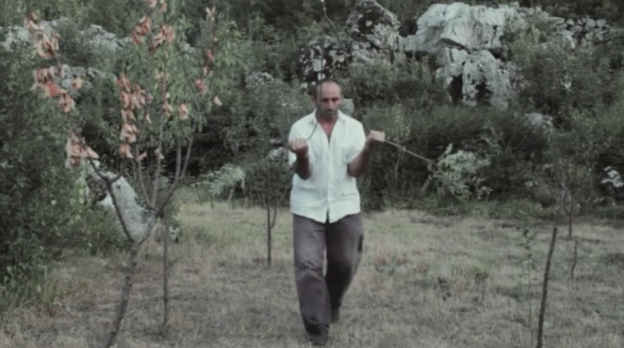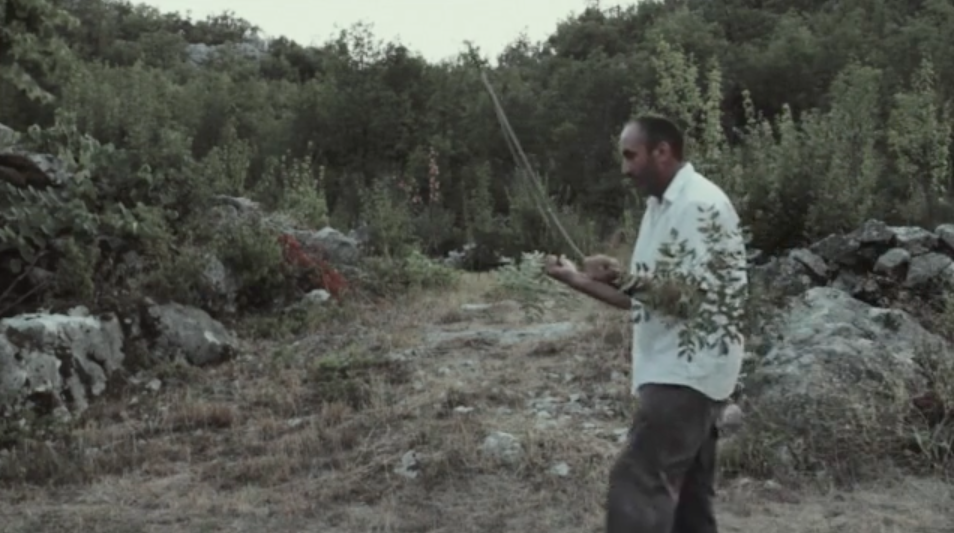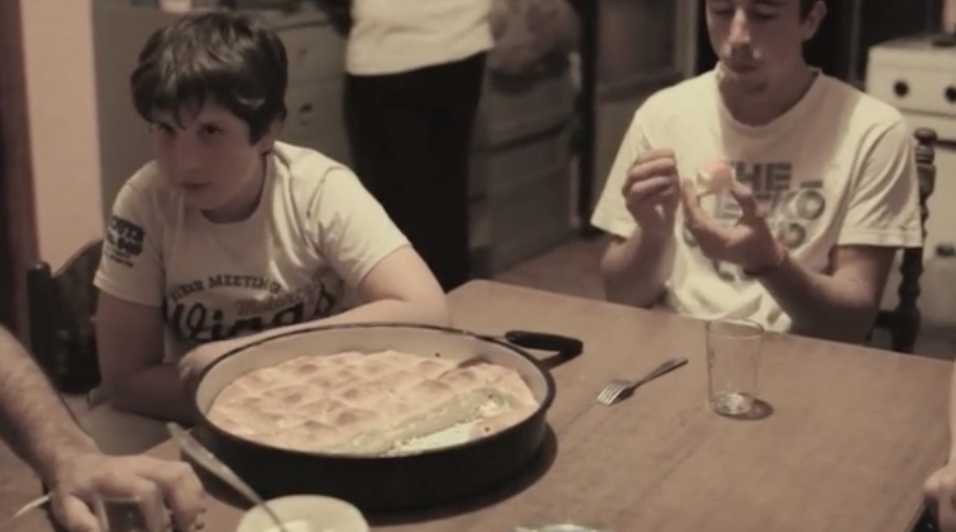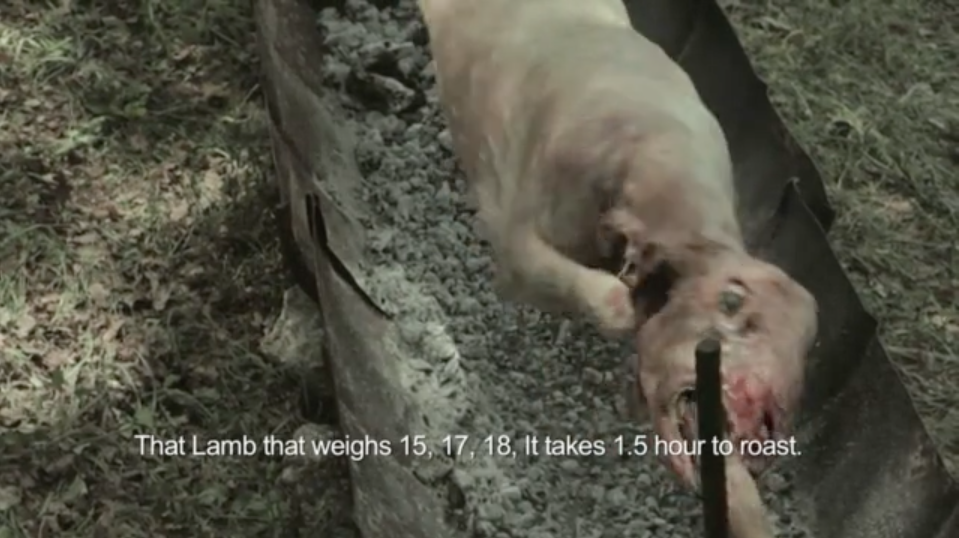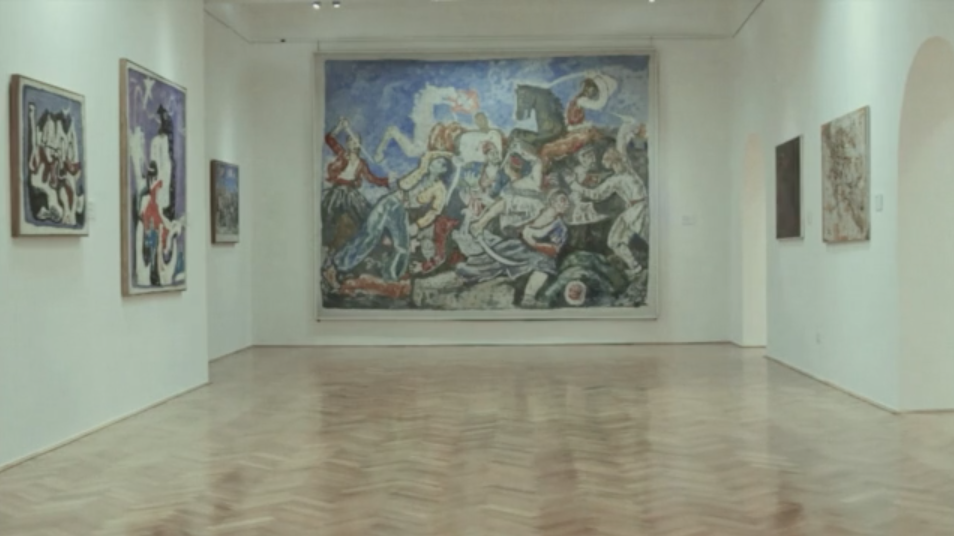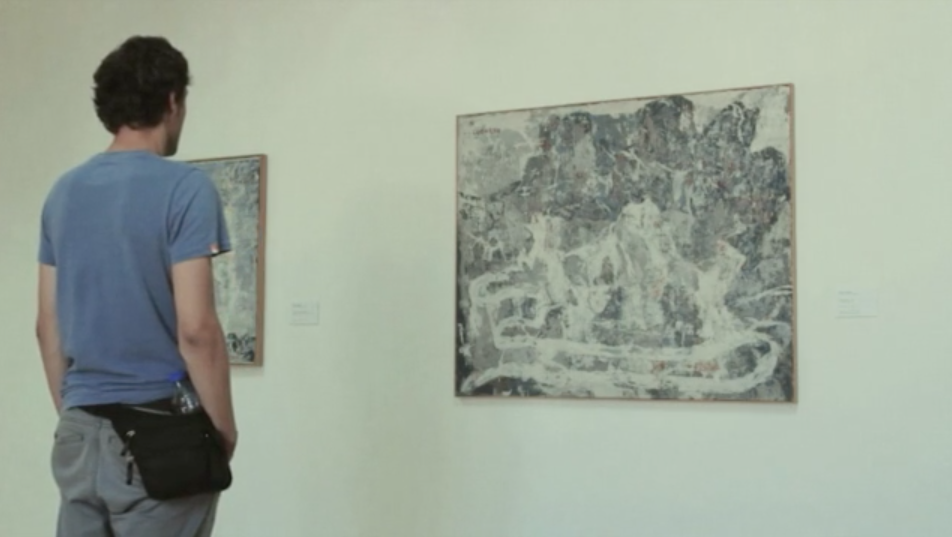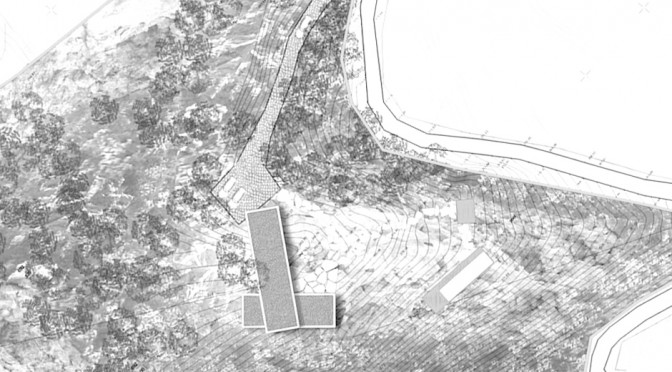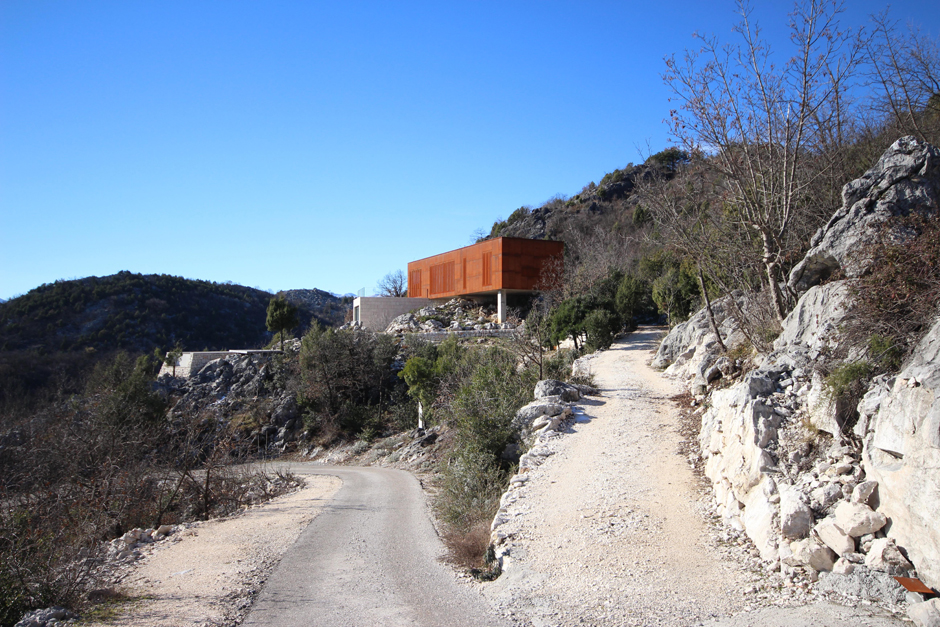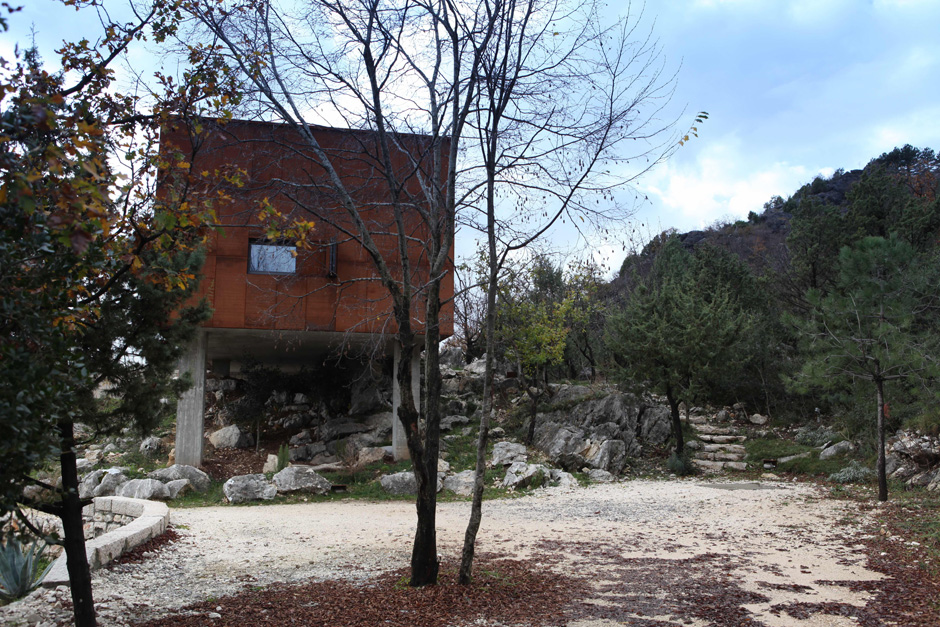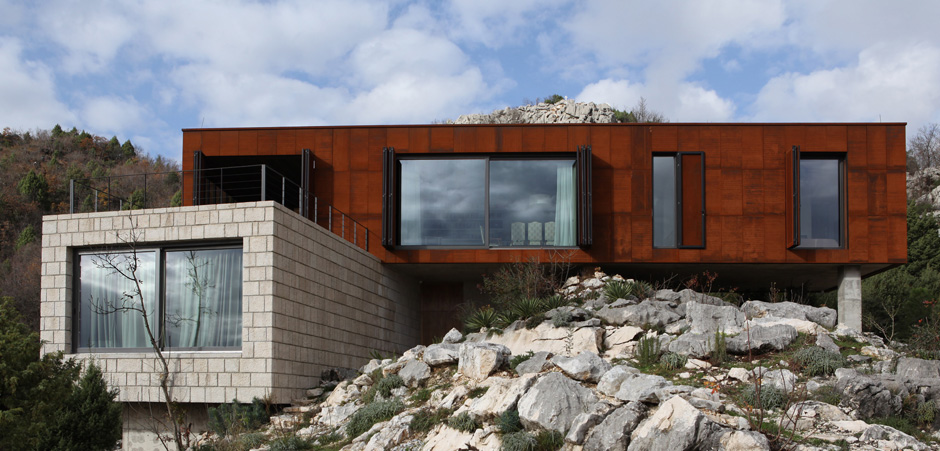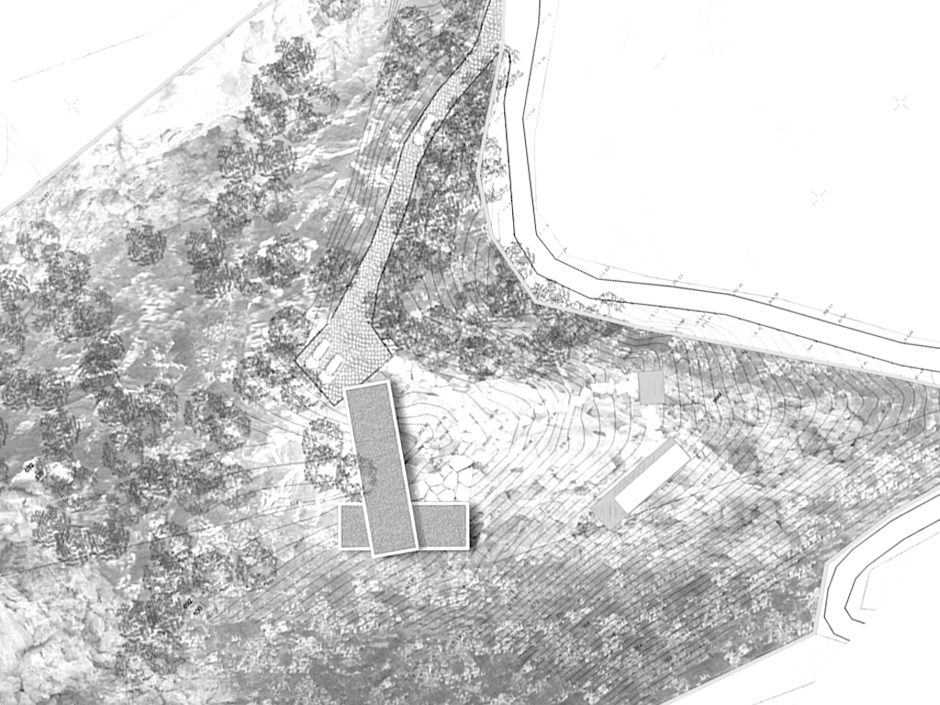Continuing from my previous post on extending a case studies, here is more details of what I am going to propose. Read here for my previous post.
I have chosen to use Vladimir’s Karst documentary as my case study of choice and I am going to extend this film into an exhibition/installation. The motive of the exhibition is simple, to have the same experience of watching the full film by visiting the exhibition/installation. I feel this is the essence of my propose exhibition/installation because I want my visitor to leave the exhibition feeling like they know a little bit more about Karst and the art of construction. I find this documentary very unique because it explores the process and beauty of the Karst stone which is a very unlikely narrative in a film.
Furthermore, the full documentary length is about 1 hour and 12 minutes which is quite a long time for some people to sit down and watch. On top of that, is is not your typical blockbuster film and Vladimir’s Karst needed the audience to think and reflect as well. So with that being said, I don’t think there will be many general audience who is able to stomach Karst. However, I want the people to experience the film by going through the exhibition/installation. This is also part of the reason for this proposal as well. Now let’s take a look at what I would like to include in the exhibition/installation.
I would like to break the exhibition/installation into 3 parts.
1. The Process – Equipments/Processes
2. The Culture – Food/Celebration
3. The Art – Artworks/Artists/Influences
Firstly, the first section of the exhibition would start with The Process. In this section, I would like to highlight the process the masons take to complete the house. From setting up explosives to the final touches to the house, I would like to capture these events through the use of photographs, short videos and the physical equipments as well!
As you can see below, this is the machine used to mix the cement. This equipment would be good to include in the exhibition space as well to facilitate learning and knowledge.

From setting up the foundation to the measuring of the walls. These important details are important, hence showing some graphics on the exhibition would be a good idea for learning more about construction.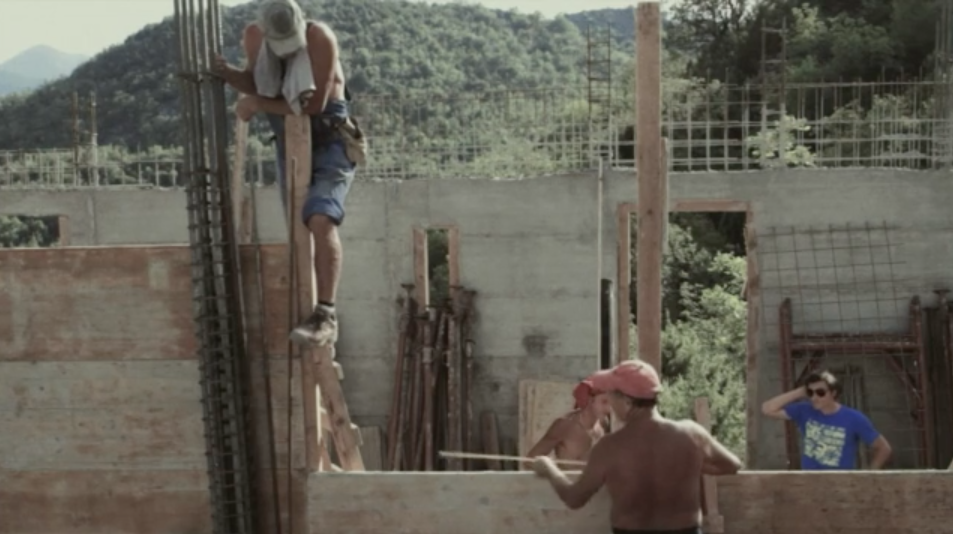
This skill take a lot of practice in order to be perfect at it and I would like my visitor to experience doing this process themselves. I would propose to have a karst stone on the exhibition space and a chisel and a mallet, where visitors can learn from the experts on how to do this by hand. It will be a once in a lifetime experience!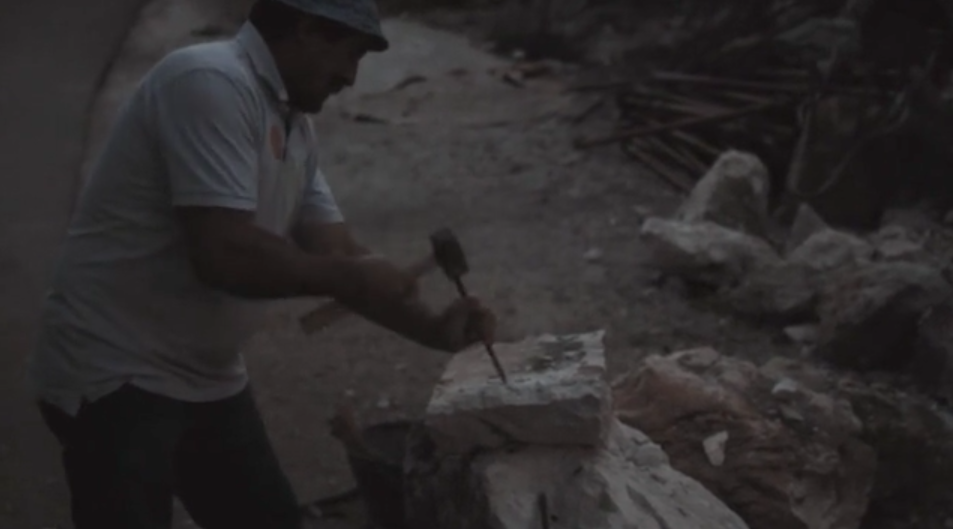

This pulley system is very interactive in a sense that it requires someone to be there to pull it back and forth. This can be used as a switch or control as part of the exhibition. For example, visitors can interact with this pulley system and whenever they move it back and forth, it will show a different photograph. 
This cutting machine cuts the rock into perfect squarish sizes. Having a video to show this would be good for learning as well. No physical machine is required as this machine can be very dangerous for the exhibition. 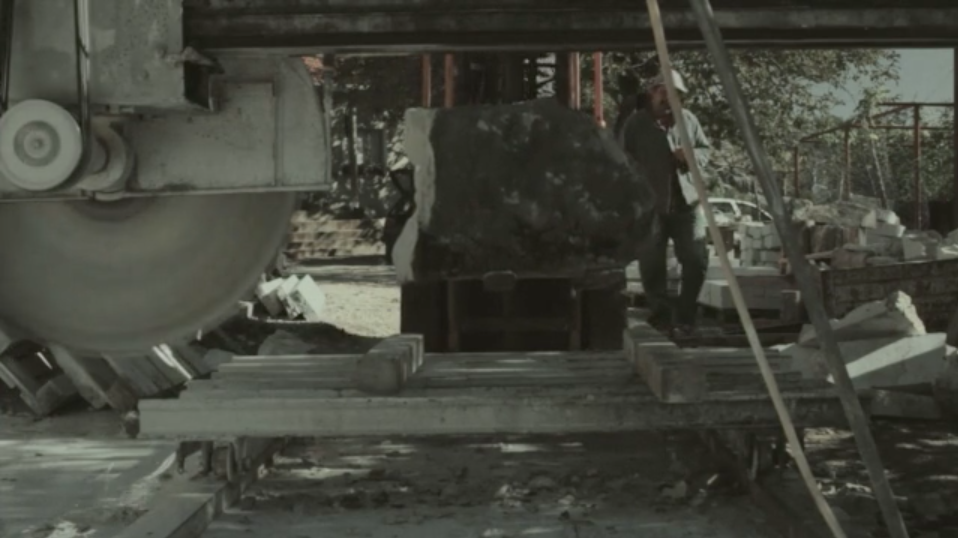

The final results of the rocks.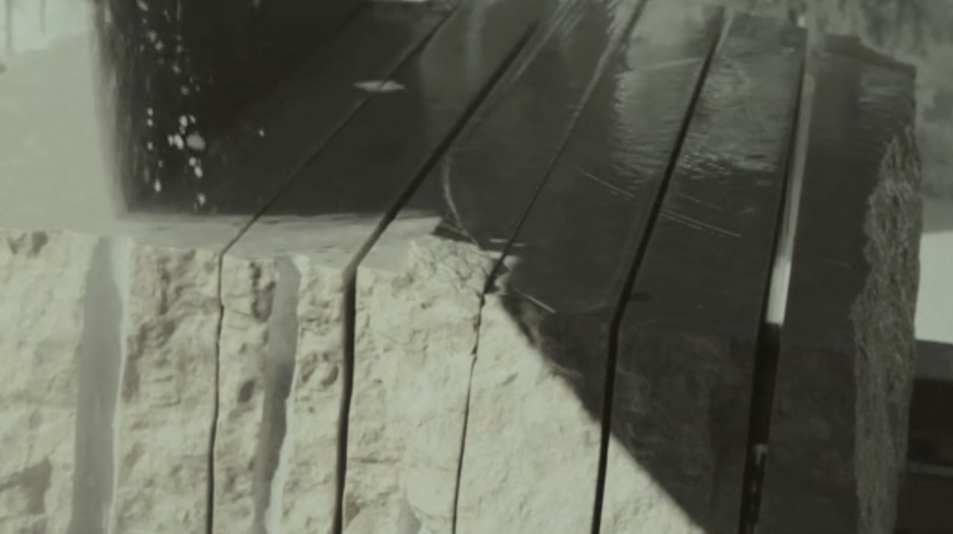
This process of holding the tree branch as you can see below is still puzzled me actually. But I do know this, there seem to be some natural force that is interact with the branch. This is a very unique experience actually. I would propose this to be included in the installation/exhibition space as well so people could actually try this for themselves!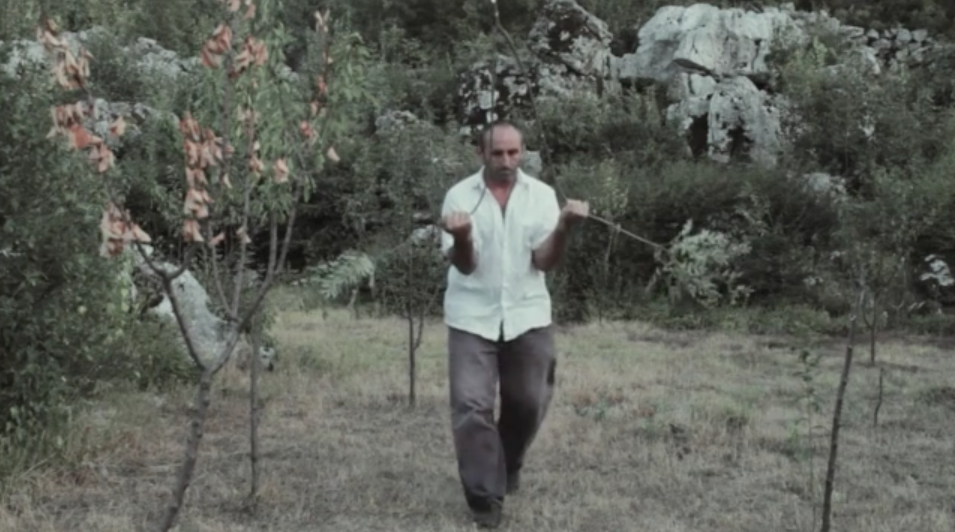
Secondly, the culture of the people of Montenegro. The stonemasons family and their life is quite prominent in the film as the director wanted to highlight the lifestyle and culture of the Montenegro people. Below, you can see that their really enjoy cooking and this is evident in the two screenshots below. Even after the completion of the house, they organised a huge celebration with the lamb. I would like to highlight this in my exhibition, to include the food recipe as well as some food tasting. The culture is also very important and I would definitely highlight this in my exhibition / installation as well.
Thirdly, the artworks. The key influence of Karst was Petar Lubarda where Vladimir dedicate this film to. Furthermore the colour treatment of the film is inspired by Petar Lubarda’s painting as Vladimir mention in an interview! Petar Lubarda was a painter and was considered one of the most important painter in the region of Montenegro. I feel that to include one of his painting in the Exhibiton/Installation would be ideal as it is also mention in the film as well. The architect visited the gallery where Petar Lubarda’s work is being exhibited and is amazed by his works. Visitors could also learn a little bit more of the artist and his artworks and how the artwork influence the film.
To close this lengthy post, I would like to summaries my idea of proposing an exhibition/installation that will engage the visitors to learn about the essence of construction and Karst. Karst is a documentary following the life of a stonemason family and their work processes. This is a very interesting documentary and by highlighting certain key moments into the exhibition space, the message of the film can be further heightened I feel. With that being said, I would to end this post with a thought, would you rather watch a 1 hour documentary or go through a 15 minutes exhibition space?
